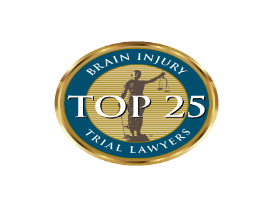Mastering Your Focus: Strategies for Avoiding Distractions
In today’s fast-paced world, the ability to stay focused and avoid distractions is a valuable skill. Whether you’re working on a crucial project, studying for an exam, or simply trying to complete daily tasks efficiently, distractions can disrupt your workflow and hinder your productivity. In this comprehensive guide, we’ll explore the art of avoiding distractions, providing you with practical strategies and techniques to help you regain control of your attention and stay on track.
The Impact of Distractions
Distractions come in various forms and can have a significant impact on both your personal and professional life. Here are some of the consequences of succumbing to distractions:
-
Decreased Productivity: Distractions can disrupt your workflow, leading to reduced productivity and increased time spent on tasks.
-
Lower Quality Work: When you’re distracted, the quality of your work can suffer as you may not pay full attention to details and nuances.
-
Missed Deadlines: Frequent distractions can cause you to miss important deadlines, leading to stress and potential consequences.
-
Increased Stress: The constant pull of distractions can increase stress levels, as you struggle to juggle multiple tasks and responsibilities.
-
Reduced Focus: Over time, habitual distractions can erode your ability to concentrate, making it even harder to stay focused.
Common Sources of Distraction
Understanding where distractions come from is the first step in effectively avoiding them. Common sources of distraction include:
-
Technology: Smartphones, social media, and email notifications are prime sources of distraction.
-
Work Environment: A cluttered or noisy workspace can make it difficult to concentrate.
-
Multi-Tasking: Trying to do multiple tasks at once can lead to distraction and decreased productivity.
-
Procrastination: Delaying important tasks often leads to last-minute rushes and increased distractions.
-
Lack of Prioritization: Failing to prioritize tasks can result in getting sidetracked by less important activities.
Strategies for Avoiding Distractions
Now, let’s delve into practical strategies and techniques to help you avoid distractions and stay focused:
1. Create a Distraction-Free Workspace
- Clear Clutter: Keep your workspace organized and clutter-free to minimize visual distractions.
- Reduce Noise: Use noise-canceling headphones or play soft background music to drown out noise distractions.
- Set Boundaries: Inform colleagues or family members about your need for focused work time to minimize interruptions.
2. Set Clear Goals and Priorities
- Prioritize Tasks: Identify your most important tasks and tackle them first to reduce the temptation of procrastination.
- Set SMART Goals: Make your goals Specific, Measurable, Achievable, Relevant, and Time-bound to stay on track.
3. Time Management Techniques
- Use the Pomodoro Technique: Work in focused 25-minute intervals (Pomodoros) with short breaks in between to maintain concentration.
- Time Blocking: Allocate specific time blocks for tasks and stick to the schedule.
4. Limit Technology Distractions
- Silence Notifications: Turn off non-essential notifications on your devices to minimize interruptions.
- Use Apps: Install productivity apps or browser extensions that block distracting websites during work hours.
5. Practice Mindfulness and Meditation
- Mindfulness: Incorporate mindfulness exercises into your routine to improve your ability to stay present and focused.
- Meditation: Regular meditation can enhance your concentration and reduce the impact of distractions.
6. Set Clear Boundaries
- Communicate Your Needs: Let friends, family, and colleagues know when you need uninterrupted focus time.
- Designate Work Hours: Establish specific work hours and stick to them to create a routine that minimizes distractions.
7. Take Breaks and Rest
- Regular Breaks: Schedule short breaks to recharge and refocus your mind.
- Adequate Sleep: Ensure you get enough sleep to maintain cognitive function and resist distractions.
8. Utilize Productivity Tools
- Task Managers: Use task management apps to organize your work and set reminders.
- Note-Taking Apps: Keep important information and to-do lists in digital note-taking apps for easy access.
9. Accountability Partners
- Find an Accountability Partner: Share your goals with someone who can help keep you on track and accountable.
10. Practice Self-Compassion
- Forgive Yourself: If you do get distracted, avoid self-criticism. Instead, acknowledge the distraction and refocus on the task at hand.
The Journey to Distraction-Free Productivity
Avoiding distractions is a journey that requires effort, practice, and self-awareness. Remember that it’s natural to face distractions from time to time, and perfection is not the goal. Instead, strive for progress and continuous improvement in your ability to stay focused.
By implementing the strategies outlined in this guide and adapting them to your specific needs and preferences, you can reclaim your attention, boost your productivity, and achieve your goals with greater ease and efficiency. The path to distraction-free productivity begins with a single step, and every effort you make brings you closer to mastering your focus.









